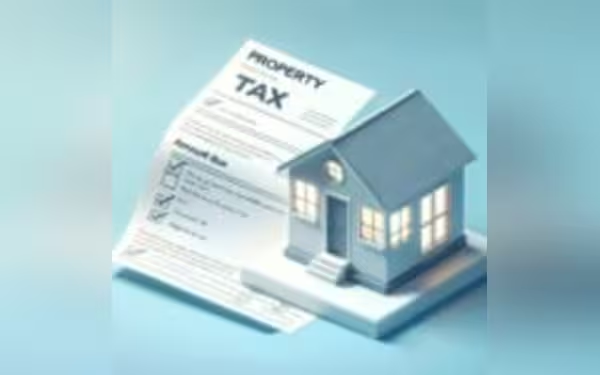Sunday, December 22, 2024 03:53 AM
Government Proposes Abolition of Structure Tax on Buildings
- Structure tax created hurdles in property transactions.
- Committee recommends complete abolition of the tax.
- Potential revival of the real estate market anticipated.
 Image Credits: pakistantoday
Image Credits: pakistantodayThe government is considering abolishing the structure tax on buildings to revive the struggling real estate market in Peshawar.
The structure tax on buildings, introduced in 2016 by the then-deputy commissioner of Peshawar, has been a contentious issue for property owners and real estate stakeholders alike. This tax was initially aimed at generating revenue but ended up creating significant hurdles in property transactions due to its exorbitant rates. As a result, many property transfers came to a standstill, causing frustration among buyers and sellers.
Recent reports indicate that the government is now considering the abolition of this structure tax. The finalized recommendations are currently awaiting approval from the Chief Minister. In response to the challenges posed by this tax, leaders from the Pakistan Tehreek-e-Insaf (PTI) party took action, leading to the formation of a committee. This committee, headed by the Senior Member Board of Revenue (SMBR), included various key stakeholders who were directly affected by the tax.
Upon reviewing the structure tax, the committee concluded that it was illegal under the Stamp Act of 1899. This act had been enforced with the intervention of the Federal Board of Revenue (FBR). Before the imposition of the structure tax, property transfers generated a substantial revenue of PKR620 million annually. However, after the tax was introduced, this figure plummeted to a mere PKR60 million, highlighting the negative impact of the tax on the real estate market.
The committee's findings revealed that the structure tax was only applicable to municipal areas, excluding zones governed by the Peshawar Development Authority (PDA). Furthermore, the tax was later extended to other regions, including Mardan and Nowshera, which only added to the confusion and discontent among property owners.
In light of these findings, the committee has recommended the complete abolition of the structure tax. Additionally, they proposed a six-month exemption from the deputy commissioner’s rate to encourage property transactions and stimulate the real estate market. This move is expected to revive the property sector, which has been struggling due to the burdensome tax.
The potential removal of the structure tax could pave the way for a more vibrant real estate market in Pakistan. It is crucial for the government to consider the recommendations of the committee seriously, as this could not only restore confidence among property owners but also enhance economic activity in the region. The future of property transactions in Peshawar and beyond may very well depend on the swift action taken by the Chief Minister and his administration.













